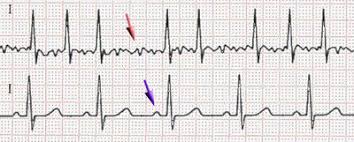MedicalResearch.com Interview with:
Frederick L. Grover, M. D.
Professor, Division of Cardiothoracic Surgery
Past Chair, Department of Surgery
University of Colorado School of Medicine-Anschutz Medical Campus
Aurora, CO
Past President, Society of Thoracic Surgeons
Vice Chair, Society of Thoracic Surgeons/American College of Cardiology Transcatheter Valve Therapy Registry
MedicalResearch.com: What is the background for this study? What are the main findings?
Response: Following approval of the first transcatheter aortic heart valve late in 2011 the TVT-R was established and data entry was mandated by CMS for all patients who were undergoing transcatheter valve therapy. Data is currently collected on transcatheter aortic valves (TAVR) from two companies, transcatheter mitral clip procedures (TMC), transcatheter mitral valve in valve or valve in ring procedures and aortic valve in valve procedures. A report is published annually jointly in the Journal of the American College of Cardiology (JACC) and the Annals of Thoracic Surgery (ATS). This report contains data from the beginning of 2012 through December 31, 2015. Peoperative risk factors, operative details and outcomes data are collected prior to procedures, during the hospitalization, 30 days post procedure and at one year and later data can be collected by linking to CMS administrative data.
For this annual report we concentrated on touching on some of the highlights since the length of the manuscript is limited. We discussed the trends in TAVR, since this is the most common procedure performed, the last two years’ experience in mitral clips since a very detailed paper was published on this last year, and the mitral valve in valve and ring since the results for this procedure were impressively good.
In regard to TAVR, 418 sites perform this procedure and the number of cases in 2015 increased from 16,295 in 2014 to 24,808. Very importantly, mortality and complications have been decreasing each year, probably related to improvements in the technology with smaller catheter and sheath sizes leading to less vascular complications, greater experience of those doing the procedures, a less sick group of patients going initially from those too ill to do an open operation on, to very high risk to high risk according to approval criteria. The age of the patients however is most often in the 80s.
(more…)


